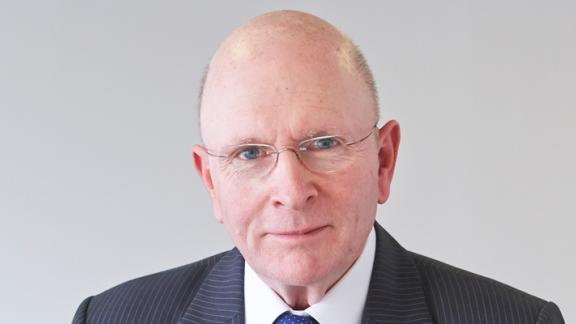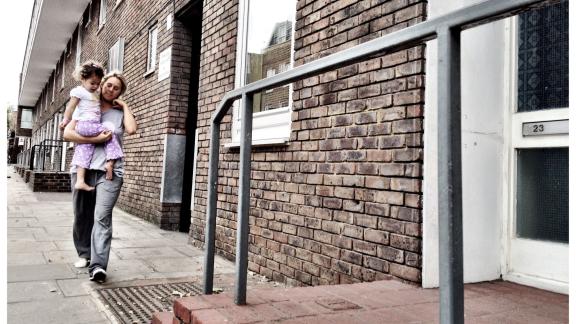Another chapter in the COVID-19 story begins...

In response to the letter on phase 3 of the NHS response to the coronavirus pandemic, Niall Dickson, chief executive of the NHS Confederation, summarises the expectations laid out and cautions not to raise expectations beyond what can be delivered.
We have now had notice that normal service, or a version of it, is about to be resumed. It was inevitable that financial pressures and activity targets would be re-imposed on the service sooner rather than later.
Friday afternoon’s letter from Sir Simon Stevens and Amanda Pritchard does not reveal the details of the financial regime for England, which is still being worked out with the government. Nevertheless, it does make clear that it is primarily through integrated care systems that controls will be exercised and that the retrospective payment mechanism will go.
Some organisations will be allowed to carry deficits, but only if their system as a whole can break even. So, the simplified arrangements for payment and contracting will be retained but the focus will be on system partnership and the rapid restoration of elective services. There is recognition that these are stretching targets and that each organisation will have its own constraints to overcome.
And the targets certainly look demanding. Hospitals will be expected to achieve at least 80 per cent of last year’s activity for overnight electives and for outpatient/day-case procedures in September, rising to 90 per cent in October. Add to this a ‘very swift return’ to at least 90 per cent of last year’s levels of MRI/CT and endoscopy procedures, with an ambition to reach 100 per cent by October; and from September the centre expects 100 per cent of last year’s activity for first outpatient attendances and follow-ups.
There is also a welcome focus beyond acute hospitals, with a drive to restore service delivery in primary care and community services and recognition of the need to support post-COVID-19 patients with ongoing rehabilitation. Likewise, it is good to see the commitment to the Mental Health Investment Standard underlined.
The ambition is the right one. We need to get as many services as possible up and running again to the highest capacity possible. There are also a set of factors that will help – to name a few: the number of coronavirus cases in hospitals has plummeted; discharge to assess is working like never before; the Nightingales will offer some extra capacity; the £3 billion injection to release independent sector capacity will enable significant elective activity; the ability to use virtual consultations will boost productivity, not least with outpatient appointments becoming almost virtual by default; the package of measures to support care homes should reduce pressures elsewhere on the system; much closer and better relationships with partners within the NHS and beyond can, and does, enable quick solutions to be developed; staff flexibility enables faster and new ways of working; and, for now at least, a lighter regulatory load means fewer unnecessary burdens. And across the service we are building a vast directory of innovations which should help to usher in new and more effective ways of working.
At the same time, everyone is operating with unprecedented levels of uncertainty. As well as the obvious constraints of PPE and social distancing and some exhausted and traumatised staff, patients themselves will not necessarily be rushing forward for treatment, even with the revised NICE guidance around self-isolation before routine procedures. The letter talks about a window of opportunity between now and winter (which there is), but it will not be long, and our grip on the virus is incredibly fragile.
The letter also talks about the importance of resilient social care services which must reflect hope over experience, and the reintroduction of continuing healthcare assessments from September just underlines the fact that we have not really solved the health and care divide.
This then is perhaps a moment to reflect and consider rather than rush to judgement. At the NHS Confederation, we have supported the moves to system working in England and welcomed the debate about creating a post 2012 Act settlement for the NHS which fosters integrated care at every level of the health and care system. The letter appears to represent another welcome step towards this new future, even if much remains unclear.
And while we are at it, perhaps we should apply the same measured response to our political masters. The UK governments and their advisors will doubtless come in for more criticism over the coming weeks. They (and especially the UK government with its primary responsibility for the economy) are grappling with an impossible balancing act. On the one hand trying to save jobs and livelihoods and combat the untold human and financial damage of lockdown, while at the same time having to wrestle with a virus that will always ruthlessly seek gaps in our defences to re-establish itself.
The NHS throughout the UK responded remarkably to the initial onslaught and it will respond impressively again over the next few months. There are great opportunities here as well as great challenges.
To support that effort, if we had one plea to our national leaders, recognising how difficult this is, it would be to focus relentlessly on clear communication about the ongoing dangers from the virus and, as far as the health service is concerned, a request not to raise expectations beyond what can be delivered. This is going to be an incredibly difficult period and with all that is going on, no-one is really going to get back to normal any time soon. At best it will be a version of it.
Niall Dickson is chief executive of the NHS Confederation. Follow them on Twitter @NHSC_Niall and @NHSConfed


